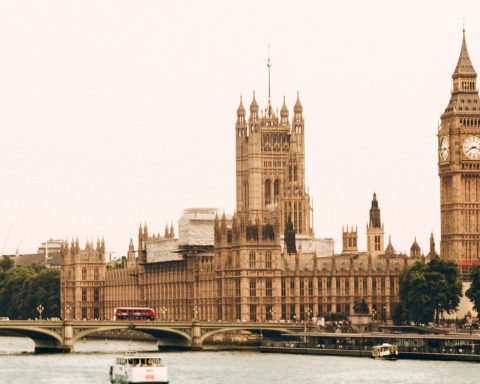 Nada Khan is an Exeter-based NIHR Academic Clinical Fellow in general practice and GPST4/registrar, and an Associate Editor at the BJGP. She is on Twitter: @nadafkhan
Nada Khan is an Exeter-based NIHR Academic Clinical Fellow in general practice and GPST4/registrar, and an Associate Editor at the BJGP. She is on Twitter: @nadafkhan
The ‘fourth estate’ typically refers to the news media and their role in the political process and advocacy. The media and the ‘estate’ of general practice have had a tricky relationship over the past few years, with anti-GP rhetoric commonplace from some media outlets. Thinking about the fourth estate, how have media depictions of general practice and GPs affected how we work, and healthcare policy in the UK?
Articles tended to frame GPs in a negative light, and as major contributors to the difficulties facing patient access to primary care.
Much of the recent research around media depictions of GPs have been published here in the British Journal of General Practice by Trish Greenhalgh and her team in Oxford. When they analysed 400 articles on general practice between 2016 to 2017, the most common themes in the articles were the workforce crisis and patient access to general practice along with organisation of care, GPs poor clinical performance and the ‘absence of virtues’ amongst GPs.1 Articles tended to frame GPs in a negative light, and as major contributors to the difficulties facing patient access to primary care. Following on from this work, the team looked at media depictions of general practice throughout the Covid pandemic; the narrative generally depicted GPs as heroes at the beginning of the pandemic, then villains by the end.2 The changing depictions of remote consulting led to media campaigns by the Daily Telegraph and the Daily Mail, who lobbied the government to increase the number of face-to-face consultations in general practice. And, well, it worked. Sajid Javid, the then Health Secretary in 2021, lauded and cited these campaigns in his plans to increase face to face appointments in general practice. I spoke to Trish Greenhalgh for a recent BJGP podcast about the media’s influence on policy; she commented that ‘the press have stopped just reporting on what’s happening and they have become, what we called, an actor in the drama’. In other words, the newspapers aren’t just reporting the news, they are making the news, and are driving political campaigns to change practice in primary care at a policy level.
Remote consulting has certainly been a bugbear amongst some media outlets. Although remote working Is not uncommon in general practice (and indeed some jobs actively advertise for remote GPs), parts of the media have singled out GPs and practices for working away from their patch and delivering low rates of face to face consultations. The Mail Online has developed a tool using NHS data to allow readers to look up any practice in the country and see what proportion of appointments are delivered face to face. In itself, the tool is perhaps just a way to accessibly present the baffling spreadsheets on appointments in general practice available on the NHS digital website, but this tool is framed to scapegoat GPs by looking at ‘how bad your local GP surgery is faring amid England’s never-ending appointment crisis’ and provides a table of ‘named and shamed GPs doing fewest face-to-face appointments’.3 Kamila Hawthorne responded to this tool by emphasising that ‘naming and shaming’ GP practices is ‘unhelpful, demoralising and simply works to deteriorate trust between patients and their GP teams.’4 The British Medical Association goes further and suggests that the media is targeting the wrong establishment here, and that the media should redirect their focus to challenge a government that is chronically underfunding and under resourcing general practice.5 Will this latest campaign singling out practices and GPs again work to change practice at a policy level?
Negative portrayals of general practice in the media predate COVID-19 and have played a part in career intentions amongst early career medics and later career GPs. In a study looking at GP workforce retention, GPs described how the constant and relentless negative press has a negative impact on morale and professional identity, leading to an ‘emotionally and physically exhausted workforce’.6 And this was in 2015! Certainly, anyone reading any of the red tops knows that things have not improved since then. I previously discussed a paper by Natasha Doran and colleagues which looked at GPs who left the performers list between 2009-2014. Factors relating to the media were cited by 63% of the leavers surveyed in this study, who felt worn down by negative media representations and the political spin against general practice, again, leaving them feeling undermined and demoralised.7
When it works well, the fourth estate can hold institutions responsible for failings and act as a watchdog to bring these failings to the public’s attention.
When it works well, the fourth estate can hold institutions responsible for failings and act as a watchdog to bring these failings to the public’s attention. Some people who feel that general practice has failed them might feel that the fourth estate is fulfilling its role and campaigning to improve care in the NHS. But it is worth reflecting on the unintended consequences of persistent efforts by parts of the media who are selling a narrative of underworking, underperforming, overpaid GPs. If we lose more GPs as a result of negative media portrayals and their impact on recruitment and retention, it’s hard to see how either patients or the workforce are going to win.
The RCGP and the BMA already work in an advocacy role to lobby the government, but perhaps collectively as a group, GPs need to consider how we use the media effectively as a tool for policy change. As Trish Greenhalgh stated during our podcast recording, ‘If these are the rules of the game, we need to team up with sympathetic members of the lay press and present our side of the story.’ The fourth estate, friend or foe to general practice? Perhaps it is time to start remaking the narrative.
References
- Barry E, Greenhalgh T. General practice in UK newspapers: an empirical analysis of over 400 articles. Br J Gen Pract. 2019;69(679):e146-e53.
- Mroz G, Papoutsi C, Rushforth A, Greenhalgh T. Changing media depictions of remote consulting in COVID-19: analysis of UK newspapers. Br J Gen Pract. 2021;71(702):e1-e9.
- Ely J. Definitive guide to England’s 6000+ GP practices: From list size to number of doctors and face-to-face access (as well as what patients really think), our fascinating tools list all the data…so how does your surgery fare? MailOnline 2023.
- ‘Naming and shaming’ individual GPs and practices ‘unhelpful and demoralising’ and damages trust, says new RCGP Chair [press release]. Royal College of General Practitioners, 29 November 2022.
- ‘Anti-GP’ media rhetoric risks fuelling climate of abuse, says BMA [press release]. England: British Medical Association2021.
- Dale J, Potter R, Owen K, Parsons N, Realpe A, Leach J. Retaining the general practitioner workforce in England: what matters to GPs? A cross-sectional study. BMC Fam Pract. 2015;16:140.
- Doran N, Fox F, Rodham K, Taylor G, Harris M. Lost to the NHS: a mixed methods study of why GPs leave practice early in England. Br J Gen Pract. 2016;66(643):e128-35.
Featured photo by Thomas Charters on Unsplash







[…] Deputy Editor’s note: See also https://bjgplife.com/the-fourth-estate-friend-or-foe-to-general-practice/ […]